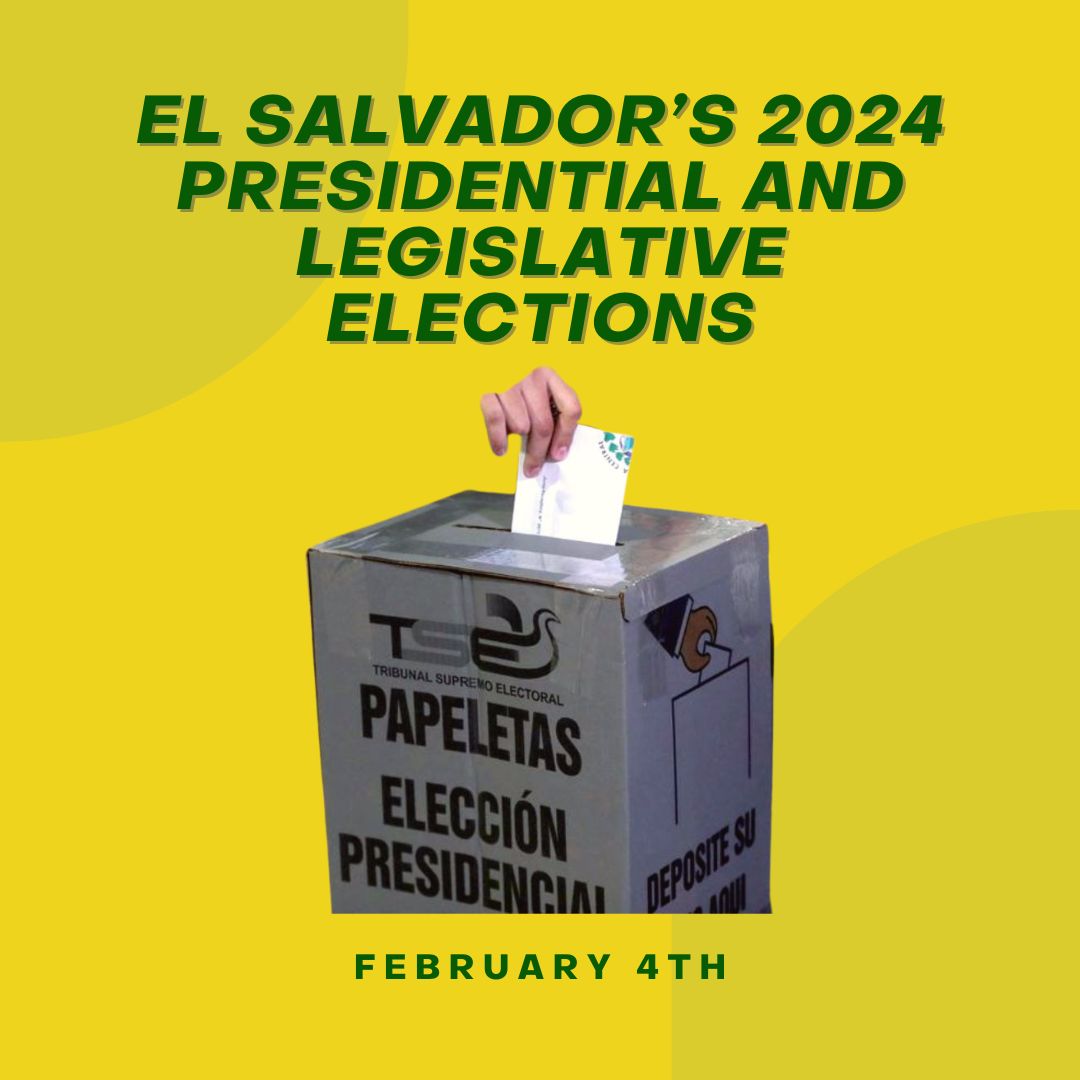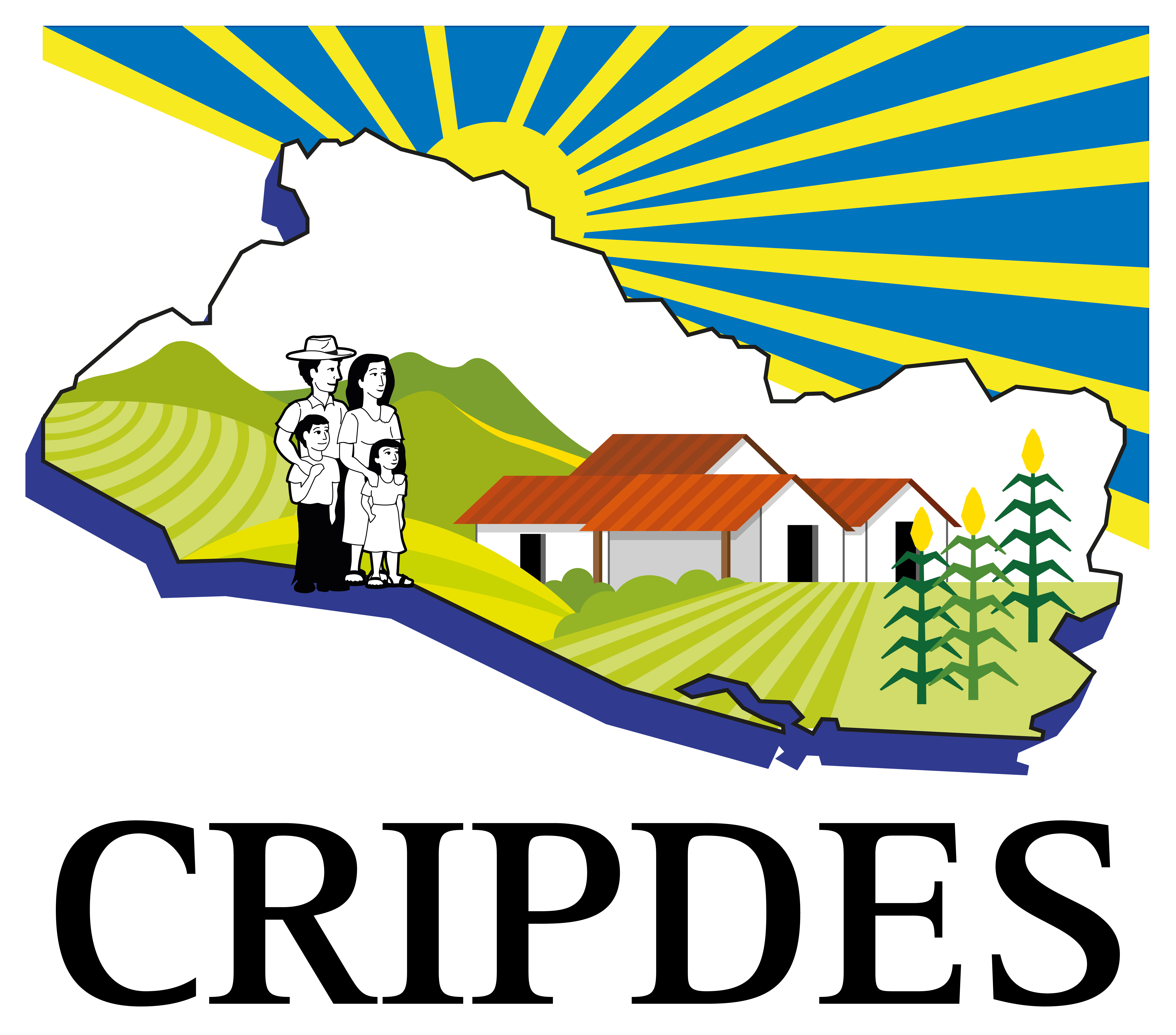Politics
February 4, 2024 Elections Update / Actualización de las elecciones del 4 de febrero de 2024
EN ESPAÑOL ABAJO
Presidential and legislative elections that took place in El Salvador on Sunday, February 4 were characterized by many irregularities before, during and after.
CRIPDES leadership points out that the rupture of democracy, irregularities and fraud in the electoral process occurred since 2020.
- February 9th, 2020. President Bukele burst into the legislative hall on February 9, 2020. That event marked the beginning of the rupture of the fragile Salvadoran democracy. His goal was to intimidate and threaten deputies to follow his orders.
- May 1st, 2021. Removal of supreme court justices and imposition of new justices who respond to the office of the executive branch.
- September 5th, 2021. Magistrates of the Constitutional Chamber imposed by Bukele endorsed immediate presidential reelection despite the fact that the constitution does not allow it.
- March 15, 2023. The Salvadoran Legislative Assembly approved the repeal of article 291-A of the electoral code, which prohibits electoral changes or reforms less than a year before elections.
- June 1, 2023. President Bukele announces the reduction of municipalities and deputies. This forced the Salvadoran electoral system to change. This decree was planned to favor the incumbent party in the electoral results.
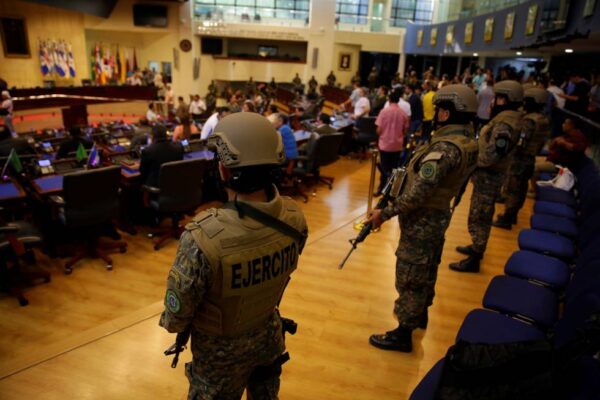
Modifying the rules of the game already gave an advantage to Bukele’s New Ideas party. This is in addition to the significant impact Bukele’s media campaign had during the 5 years of his administration, using public funds to campaign even in the period of electoral silence, and drowning out opposition parties.
On the day of the presidential and legislative elections there were also allegations of irregularities in the process:
- Voting tables were mostly made up of representatives of the New Ideas party.
- There was low voter turnout in most of the voting centers nationwide.
- Election observers abroad reported that the electoral process was developed in a disorganized manner and without information for both voters and the people serving at the voting tables.
- The vote processing system failed at national level. In addition, there was silence from the Supreme Electoral Tribunal (TSE) on this.
- The unconstitutional presidential candidate proclaimed himself the winner, and announced that his party had won 58 out of 60 deputies, at 9pm on election day, although at that time there was no official data.
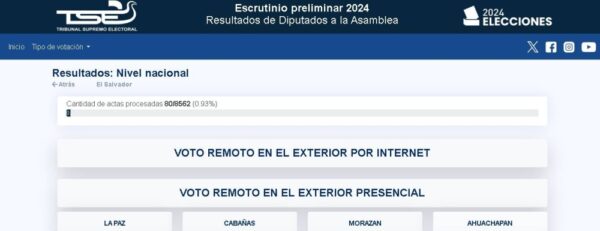
Three days have passed since the elections. There are not official updates on the results for the presidential nor for legislative elections.
Other irregularities were found after election day. For example, ballots were found by students in two schools that served as voting centers and duplication of votes in favor of the New Ideas party.
The TSE has again installed tables to manually count the votes. It may take approximately 15 days to have official data.
The opposition parties are asking the TSE to repeat the legislative elections on March 3, when the municipal elections and the Central American Parliament will be held.
For community organization leaders, El Salvador is facing one of the worst electoral processes in the last 40 years. It reminds them of the dark times and fraudulent elections that El Salvador experienced in the 1970s.
El Salvador is experiencing social, economic and political crises that are becoming more and more acute. Community leaders are convinced that we need to continue the struggle to defend human rights and to organize ourselves. They ask to the international community to continue observing and accompanying the demands of the vast majority of people.
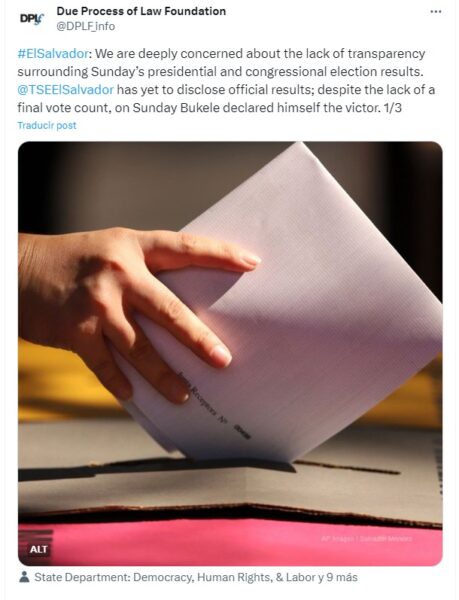
Las elecciones presidenciales y legislativas que tuvieron lugar en El Salvador el domingo 4 de febrero se caracterizaron por numerosas irregularidades antes, durante y después.
El liderazgo de CRIPDES señala que la ruptura a la democracia, las irregularidades y el fraude en el proceso electoral se dieron desde el 2020:
- 9 de febrero 2020- presidente bukele irrumpió en el salón legislativo el 9 de febrero de 2021. Ese hecho marcó el inicio de la ruptura de la frágil democracia salvadoreña. Su objetivo era intimidar y amenazar a los diputados a seguir sus órdenes.
- 1 de mayo, 2021 Destitución de los magistrados de la corte suprema de justicia y la imposición de nuevos magistrados que responden a la oficina del poder ejecutivo
- 5 de septiembre, 2021 Los magistrados de la Sala de lo Constitucional impuestos por Nayib Bukele avalaron la reelección presidencial inmediata a pesar de que la constitución no lo permite.
- 15 de marzo, 2023 La Asamblea Legislativa salvadoreña aprobó la derogación del artículo 291-A del código electoral, que prohíbe los cambios o reformas electorales a menos de un año de las elecciones.
- 1 de junio, 2023 Presidente Nayib Bukele anuncia la Reducción de municipios y diputados. Lo cual obligó a cambiar el sistema electoral salvadoreño. Dicho decreto fue planificado para favorecer al partido en turno en los resultados electorales.
Las modificaciones a las reglas del juego ya le daban ventaja al partido de nuevas Ideas, a esto se le sumaba el gran impacto de su campaña mediática durante los 5 años de su gobierno, el uso de fondos públicos para hacer campaña aun en periodo de silencio electoral y el ahogamiento a los partidos de oposición.
El día de las elecciones presidenciales y legislativas también hubo denuncias de irregularidades en el proceso:
- Las mesas receptoras de votos estaban conformadas mayoritariamente por representantes del partido de nuevas ideas.
- Poca afluencia de votantes en la mayoría de centros de votación a nivel nacional.
- Observadores electorales en el exterior informan que este proceso electoral se desarrolló de una manera desorganizada y sin información tanto para los votantes como para las personas que servían en las mesas receptoras.
- El sistema de procesamiento de votos falló a nivel nacional. Además, hubo silencio por parte del TSE sobre esto.
- El candidato presidencial inconstitucional se proclamó ganador, y anunciando que su partido tenía ganados 58 de 60 diputados, a las 9pm el día de las elecciones, aunque a esa hora no había datos oficiales.
Han pasado 3 días de las elecciones. Aun no hay actualizaciones oficiales ni para presidente ni de diputados.
Papeletas han sido encontradas por estudiantes en 2 centros escolares que sirvieron como centros de votación y Duplicacion de votos a favor de Nuevas Ideas han sido otras denuncias.
El TSE ha instalado nuevamente mesas para contar manualmente los votos. Esto puede tomar un aproximado de 15 días para tener datos oficiales.
Los diferentes partidos de oposición piden al TSE repetir elecciones legislativas el próximo 3 de marzo, cuando se llevaran a cabo las elecciones municipales y del parlamento centroamericano.
Para liderazgos de la organización comunitaria, El Salvador está enfrentando una de los peores procesos electorales en los últimos 40 años. Les hace recordar los tiempos oscuros y las elecciones fraudulentas que vivió El Salvador en la década de los 70s.
A pesar de la incertidumbre que vive El Salvador y la crisis política social y económica que se encrudece cada vez más, estos liderazgos están más convencidos de la necesidad de seguir en la lucha por la defensa de los derechos humanos y la organización del pueblo. Piden a la solidaridad y a la comunidad internacional estar observando y acompañando las demandas de la gran mayoría.

